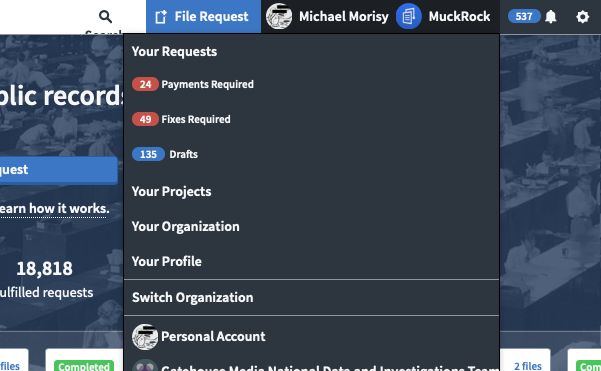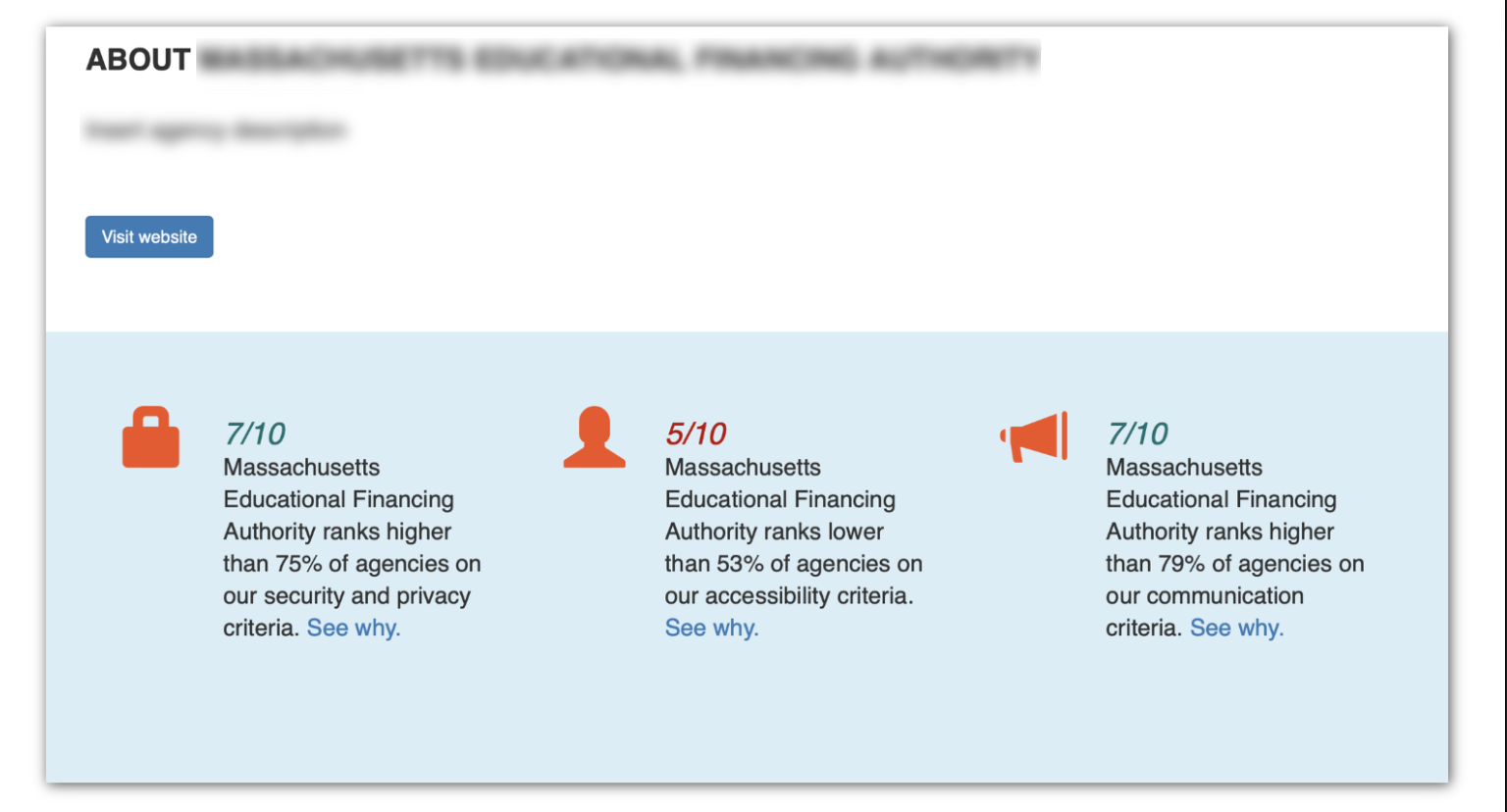Last week, we saw a lot of progress on our new tool for monitoring government agency websites. Building off data from the MuckRock API, it checks and grades agency web pages on criteria such as privacy, accessibility, and speed.
For previous site improvements, check out all of MuckRock’s release notes, and if you’d like to get a list of site improvements every Tuesday - along with ways to help contribute to the site’s development yourself - subscribe to our developer newsletter here.
Site Updates
Better organization tracking
Before getting into the latest with Civic Pulse, one quick bug fix to note: The site now more aggressively checks which organization you’ve selected to work in, so that there should be fewer cases where you’re in an Org but are prompted to pay for requests.
Switching your active organization is easy: Just hover over your name on the top right of the screen and then click the Organization you want to be working under. If you want to be drawing from a person pool of requests rather than an organizations, just click “Personal Account”:

Come hack on Civic Pulse — and help us come up with a new name
If you’re the kind of person who gets excited about building cool, impactful open source software, you might also be interested in our Tuesday meetups in Cambridge, Massachusetts or our other open source efforts.
We’re working on a website that scans government websites to check on how well they’re doing on a number of important factors, ranging from mobile friendliness and accessibility to ease of contacting them. Since we already have a database of over 10,000 agencies and an API to access information about them, this gives us a chance to do more with data we’ve just had sitting around collecting dust (and, er, FOIA requests).
We’ve blurred out the agency name because all the data being gathered is still very preliminary and needs lots of verification, cleaning, and correcting.

Check out the source code for this project here, and then join us Tuesday evenings or in the #MuckRock channel on the Code for Boston Slack.
Last week, we added an updated README file to explain the project, set it up so that the scrapers push data to the backend via an API, and merged in a few other nifty tweaks.
MuckRock is open source, and you can help us make it better
There are a number of OTHER ways to help us continue to improve the core MuckRock site experience. We have a project and a weekly newsletter, “Release Notes,” that highlights everything we’re working on. Register to get a summary of site updates each week and details on open issues you can help with.
Check out some of our issues labeled “help wanted” for ideas on where’s good to start, or just pop into our Slack’s #Developers channel.
Subscribers to the weekly newsletter get exclusive data sets, FOIA-related scripts, and other transparency hacker tidbits exclusively for subscribers. You can subscribe to the newsletter at the top or bottom of this page.
If you spot a bug or have a feature request, you can also help by opening an issue on GitHub.
If you do, please search open issues first to make sure it hasn’t already been reported. If it has been reported previously, please leave an additional comment letting us know it’s an issue for you, particularly if you can provide more details about when it crops up or what you think is causing the problem.
In addition to the new newsletter, we have a developer channel on the MuckRock Slack.
Image via Wikimedia Commons




